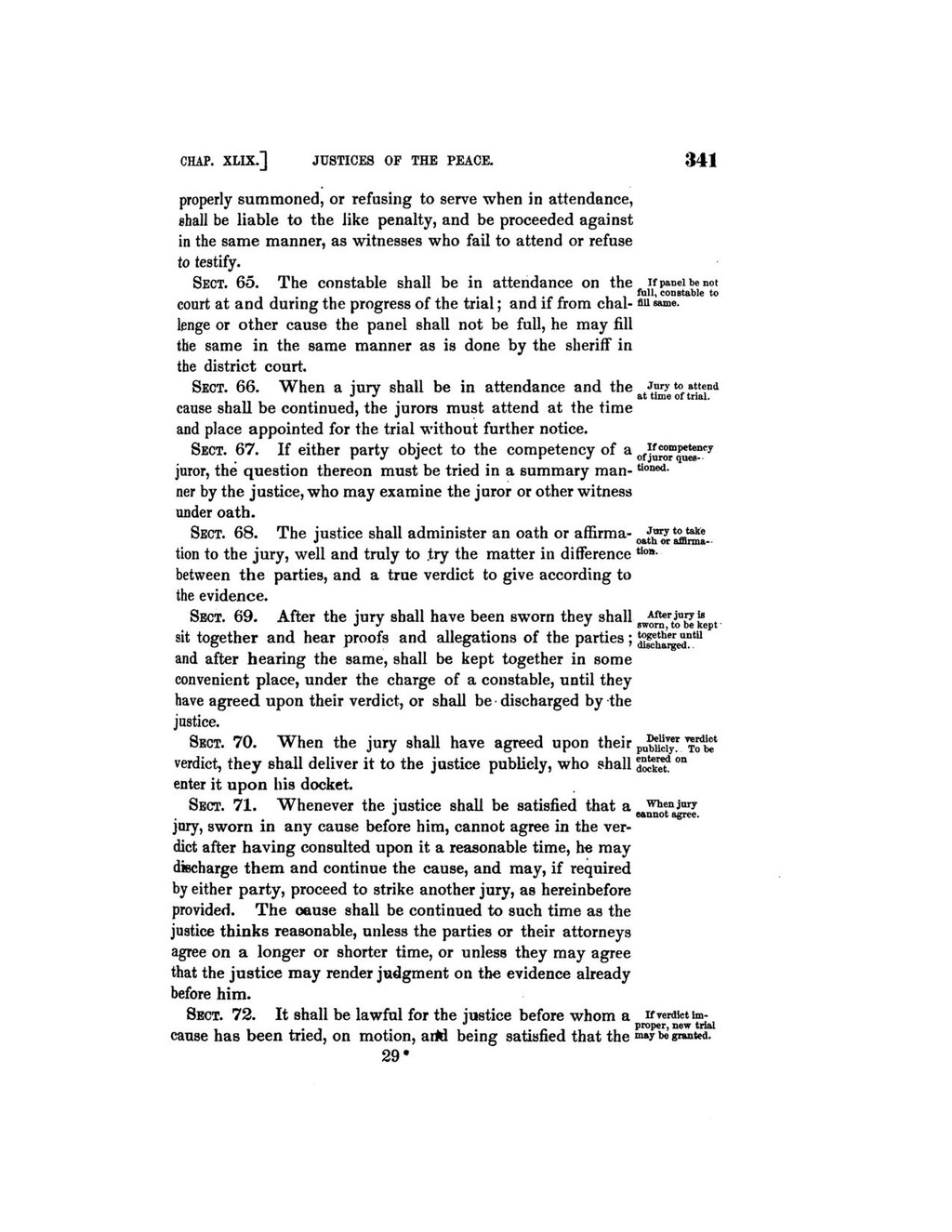properly summoned, or refusing to serve when in attendance, shall be liable to the like penalty, and be proceeded against in the same manner, as witnesses who fail to attend or refuse to testify.
Sect. 65. The constable shall be in attendance on the court at and during the progress of the trial; and if from challenge or other cause the panel shall not be full, he may fill the same in the same manner as is done by the sheriff in the district court.
Sect. 66. When a jury shall be in attendance and the cause shall be continued, the jurors must attend at the time and place appointed for the trial without further notice.
Sect. 67. If either party object to the competency of juror, the question thereon must be tried in a summary manner by the justice, who may examine the juror or other witness under oath.
Sect. 68. The justice shall administer an oath or affirmation to the jury, well and truly to try the matter in difference between the parties, and a true verdict to give according to the evidence.
Sect. 69. After the jury shall have been sworn they shall sit together and hear proofs and allegations of the parties; and after hearing the same, shall be kept together in some convenient place, under the charge of a constable, until they have agreed upon their verdict, or shall be discharged by the justice.
Sect. 70. When the jury shall have agreed upon their publisher verdict verdict, they shall deliver it to the justice publicly, who shall enter it upon his docket.
Sect. 71. Whenever the justice shall be satisfied that a jury, sworn in any cause before him, cannot agree in the verdict after having consulted upon it a reasonable time, he may discharge them and continue the cause, and may, if required by either party, proceed to strike another jury, as hereinbefore provided. The cause shall be continued to such time as the justice thinks reasonable, unless the parties or their attorneys agree on a longer or shorter time, or unless they may agree that the justice may render judgment on the evidence already before him.
Sect. 72. It shall be lawful for the justice before whom a cause has been tried, on motion, and being satisfied that the